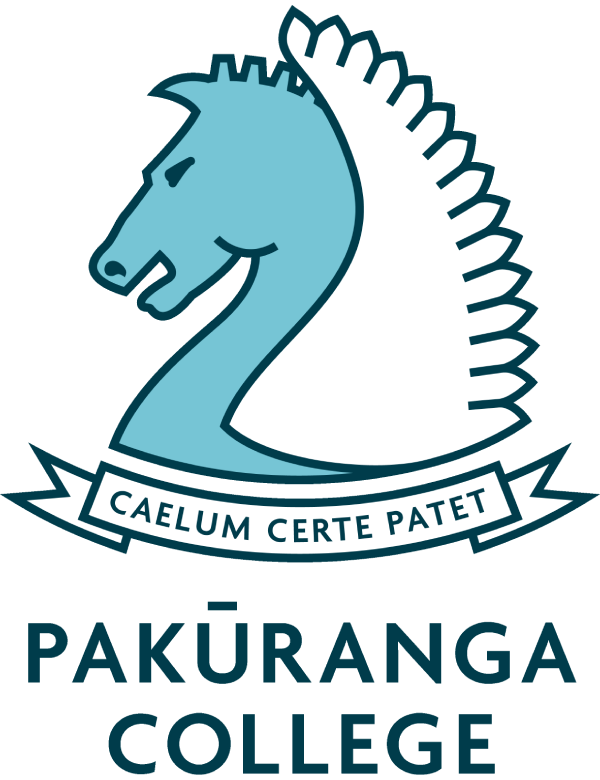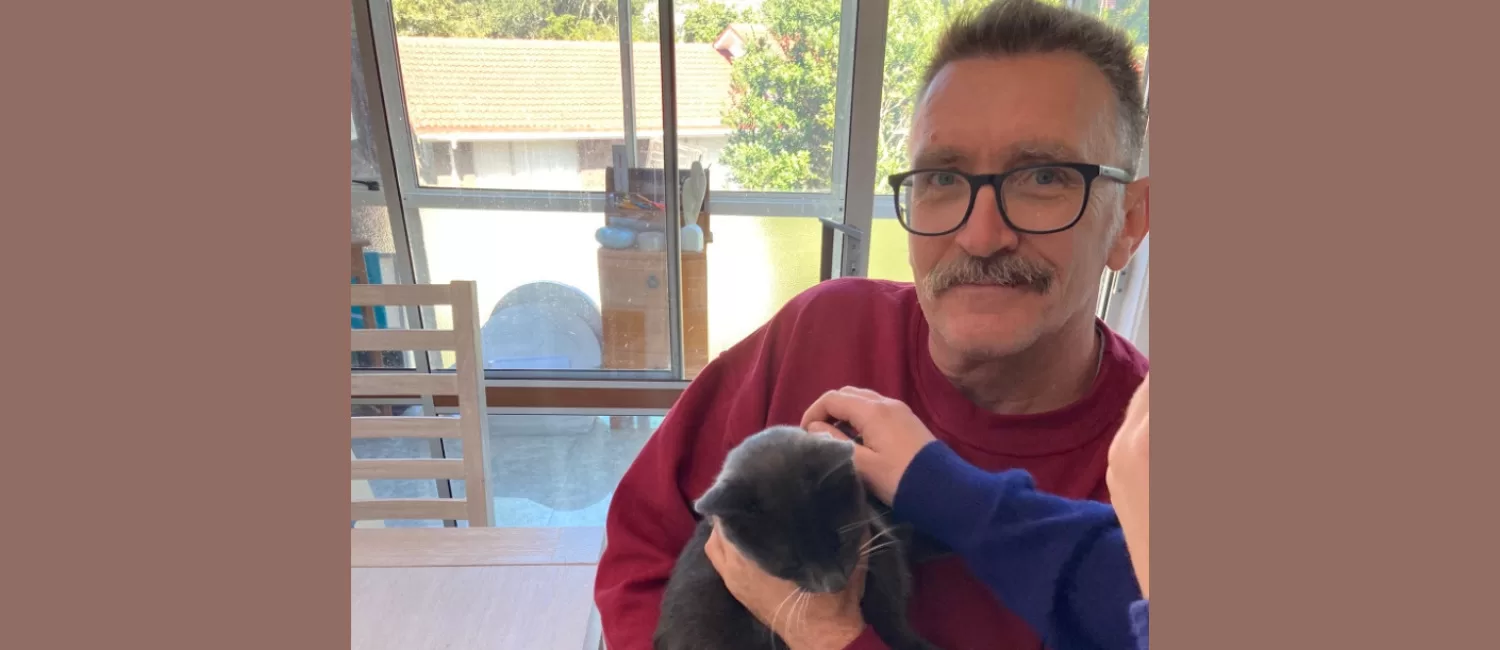Have you ever wondered what teachers spend their weekends doing? What kind of things did they get up to when they were our age? How did they end up at Pakūranga College? Here at The Pakage, we want to fill you in on all the juicy gossip and insights on the teachers at our school. So, for every edition, we will be interviewing a new teacher for you to find out more about their interesting lives, secret talents, and their advice for you as a high school student.
This edition’s special teacher is Mr Gibby!
In September of 1967, Mr Gibby was born in Bielefeld, Germany – the hometown of his full-German mother and the station at the time of his Welsh father, a soldier in the British Army. Born in the British Military Hospital, he was born a citizen of Great Britain. As the child of a soldier, that was who he was – it didn’t matter that his mother was from the progressive town of Bielefeld, or his father from the Welsh seaside county of Pembrokeshire. He was a British Army Kid – that was his culture.
Mr Gibby’s father worked as a translator in the Army, and used his German language skills to communicate with both the West and East German sides in the Cold War. His mother, having been born in Germany, spoke only German until Mr Gibby was born. His father feared that raising children with two languages would confuse them – Mr Gibby’s mother was made to learn English, and inside the household, that was the only language they would speak. However, his father couldn’t stop them from being exposed to German completely. Up until a few years into Mr Gibby’s primary schooling, he lived in Germany with his parents, little brother, and little sister. They spoke English in the British Army Schools they attended, but they would pick up German on buses and trams, in supermarkets and shopping malls, and, most notably, on the German children’s TV network. “As a child,” he said, “I soaked up all the outside language, picking it up naturally.”
Through all of this, Mr Gibby’s father wasn’t stationed in Germany for nothing. The Berlin Wall separated East and West Berlin. The USSR marketed the wall as an “anti-fascist shield”. Truthfully, its purpose was to prevent East Germans from leaving. Mr Gibby’s family would use their British Army ID cards to move between East and West Berlin for his father’s work, but for East Germans it was not nearly as easy. There was a buffer between the actual wall and East Germany lined with death strips of sand – anyone caught on them got immediately shot down. Some death strips were even mined as an extra step to prevent people from leaving. Yet even still, East Germans attempted to escape. The West Side of the Berlin Wall was decorated with graffiti and iron crosses commemorating those who had died trying to cross the deadly wall.
Midway through primary school, Mr Gibby’s father relocated to the UK to undergo Russian language training. The Cold War was intensifying, and soldiers being able to communicate with the USSR became more and more important. He went to a local village school, but adapting wasn’t a smooth process. The teacher announced to the class that Mr Gibby had come from Germany, and he was instantly surrounded by a gang of schoolboys calling him a Nazi and shouting “Sieg Heil!”, despite the fact that his dad was a British Army Soldier and Mr Gibby was a British citizen just like the rest of them. When living in the UK, his family was poor, too, his father no longer getting the wage benefits of living in an active warzone. He attended middle school in Beaconsfield (a very wealthy area) and noticed a major class difference, being treated differently due to his family’s lack of wealth.
As well as the Cold War, this was also the time of The Troubles in Northern Ireland. Mr Gibby’s father would fight in Northern Ireland against the IRA (Irish Republican Army), a paramilitary group that often posed a threat to British Army Soldiers. Bombs would be placed under people’s cars – every time the family would go for a drive, Mr Gibby’s father would have to use a telescope with a mirror attached to check for bombs underneath the car.
But living in the UK wasn’t all bad. When Mr Gibby’s family lived in Bulford, he and his siblings could explore all the Army camps, walk and cycle to nearby sights, and could even walk to Stonehenge! Eventually, once his father completed his Russian language training, they moved back to Berlin. When crossing Checkpoint Charlie into East Germany, Mr Gibby’s father would speak Russian to the USSR soldiers as a part of his new promotion. Between the promotion and living in a warzone, his family was still far from rich, but a lot less poor than before. He went back to attending British Army Schools in Germany, with other kids like him. He had quite a few friends in Germany – also the children of soldiers. One of his friends had a dad who would teach Mr Gibby and his friend how to fix cars. Sometimes, they could even go racing them around the old Berlin Olympic Stadium!
Even in Germany, Mr Gibby’s family and other military families were not safe from the IRA. The Red Army Faction and Baader-Meinhof gang would work with the IRA in Germany to bomb army bases and shoot down British Army Soldiers. Because there was such a high risk of attack in Berlin, the soldiers would go through “Rocking Horse” training. Sirens would go off, the military dads would pack their bags, and were often not seen for weeks as they prepared for the event of a USSR invasion.
When Mr Gibby was in year 11, he attended a boarding school in Germany, as the town in which his dad was stationed was too small to even have a school. On a Sunday evening, they’d take the trip to the school, board for the week, and return on Friday afternoon. One night, a siren went off that had the sound of a raid alarm. During the Cold War, the threat of nuclear attack was a common fear of civilians and army families alike. As the alarm sounded, Mr Gibby lay in his bunk, thinking that was the end, the start to the third world war.
The following school year, his father retired from the army. The Gibby family moved to Swindon in the UK, where Mr Gibby attended Sixth Form College from 1984 to 1986. Swindon was close enough to London that his father could make the commute to work as a security guard, but also close enough to Wales that the family could visit every now and then.
Once Mr Gibby graduated from the Sixth Form College, he went straight to university at the University College of London. There, he studied German Literature and Language with a minor in Psychology. At the time, he was interested in conflict journalism, reporting in war zones across different countries. Unfortunately, the Reuters News Agency where he dreamed to work would only hire foreign correspondents who could speak at least three foreign languages fluently, whereas Mr Gibby was only fluent in German and English (though some senior students may remember being taught Spanish by him in Year 9). Unsure of what to do with his degree, Mr Gibby worked many jobs as an adult as he traveled simultaneously. He worked in car factories, as a scaffolder, and even a security guard!
Eventually, Mr Gibby found his way back to Germany and found a job teaching English to Germans. This helped him discover his love of teaching, gradually moving back to the UK to teach German to the English. A few years later, he moved to Aotearoa New Zealand and soon began teaching at Pakūranga College, becoming the Mr Gibby we all know and love.
Presented by The Pakage Chair, Cerys Gibby


